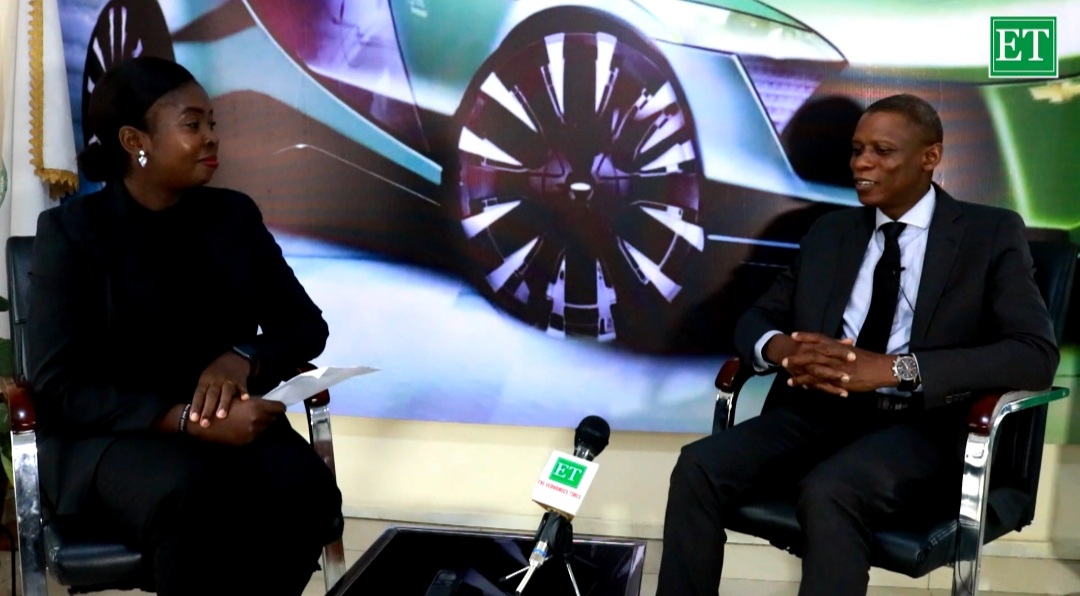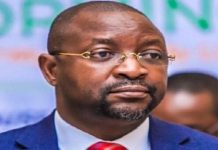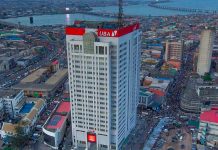
The Economic Times, Nigeria’s Authoritative Economic and Business Blog, caught up with the Director General/Chief Executive, National Automotive Design and Development Council (NADDC), Mr. Jelani Aliyu, MFR at his office in Abuja. Mr. Aliyu opened up on his passion in championing the development and utilization of electric vehicles and gas programs in Nigeria. In this exclusive interview with Barr. Chioma Uma, Mr. Aliyu disclosed that the NADDC will be working very closely with all relevant federal government agencies to ensure that all the incentives are sort of passed on to automotive manufacturers and then also be able to provide vehicle financing that would make it easier for Nigerians to purchase and use made in Nigeria vehicles. Excerpts:
I know that we’ve had this one-on-one exclusive interview with you in the past and so here we are again because we know that the NADDC plays a very vital role in the nation’s economy. I’ll begin by commending you for the giant strides you have made on behalf of the NADDC so far in recent years. Permit us to look at some of them. On the 11th of May, 2023, the Federal Executive Council approved the new National Automotive Industry Development Plan 2023. Please share with us the new plan and how it will impact the Nigerian automotive industry and investors?

Yes, the automotive industry in Nigeria has been a very exciting and incredible journey. What we have been implementing at the NADDC, is what we call the National Automotive Industry Development Plan (NAIDP) which is a set of policies, incentives, both fiscal and non-fiscal, to develop a local automotive sector. And over its implementation in the last couple of years, we have brought in an investment of over $1 billion, and quite a number of companies have a combined production capacity of over 400,000 vehicles per annum. And we’ve also been able to introduce the Hyundai Kona EV and the jet model buses. So the new approval that we got is for the NAIDP 2023 for the next 10 years. What we hope is to consolidate on the achievements so far and even accelerate the development of the automotive sector. We had five key initiatives. We have a version of the NAIDP. We have a couple more levers now that we believe together will give even more support, more incentives to spur further development of the automotive sector in Nigeria.
You also recently met with Ekrem Yüce, the mayor of Sakarya, in Turkey, to discuss the need to collaborate and invest in the Nigerian automotive sector. What can you say gave rise to this initiative?
Yes, the automotive sector in Turkey is quite developed, and we hope to learn from it and see how we can begin to replicate what they have achieved there. As we all know, Turkey just introduced a whole new automotive company, TOG, that produces purely electric vehicles. What we hope to do is to partner and take that partnership higher with them, and be able to first introduce those vehicles in Nigeria and then see how we can collaborate with them to even produce more Nigerian vehicles with the collaboration of that company. There are also other automotive related sectors in Turkey. We met with a number of component manufacturers, which we hope to introduce into Nigeria to be able to create more local content production in the country.
What does this mean for the automotive industry in Nigeria and Africa at large?
Yes, when you talk about electric vehicles, I personally believe that they are the perfect solution for Nigeria and Africa. Very little maintenance and of course no fuel needed. You can power them with renewable energy, which we have tons of in Nigeria and Africa. And so we believe that electric vehicles would really provide an opportunity to take transportation to every nook and cranny of Nigeria and Africa. So this is really an opportunity that we need to grab and run with.
How will this also benefit Turkey?
Yes, well Turkey is a global player and any nation and any industry really wants to spread its tentacles. The world now works very closely. Companies now operate regionally. They have partners and suppliers from all over the world. So for Turkey, it will provide an avenue to expand its market. And for us, it provides an opportunity to get more technology transfer and grow our industry.
We really admire the passion with which you speak about the use of these electric vehicles, as well as championing the development and utilization of electric vehicles and also gas programs in Nigeria. How ready is Nigeria for this achievement, for this advancement?
We believe Nigeria is very ready to begin with gas. Nigeria has the largest deposit of natural gas in Africa and one of the ten producers in the world. So those reserves are huge and they need to be leveraged, we also have a high amount of renewable energy that can be channeled into powering electric vehicles. NADDC is very ready. A number of our stakeholders, like I had mentioned earlier, are already in the game. Hyundai Nigeria with the
Kona EV, then we have OMAR with CNG, so also Innoson with CNG, and also Jet motors with the electric buses. So we already have stakeholders in Nigeria that are producing electric vehicles and we hope to grow that ecosystem.
What in your opinion is required to scale up the production of these electric vehicles in Nigeria?
Yes, well both public and private support. In public support, we have already begun to get the necessary support from the federal government. We have to get more of that. We will be working very closely with all relevant federal government agencies to ensure that all the incentives are sort of passed on to the auto manufacturers and then also be able to provide vehicle financing that would make it easier to purchase and use these vehicles. And then the private sector, we’re talking with them, both those that have already established and those that are coming into the game to understand what types of support they need so that they can be encouraged and be given that necessary support to make them to be able to set up and scale operations.
So how will the use of these electric vehicles boost the Nigerian economy and revenue base?
Yes, well you’ll be saving a huge amount of money that traditionally would have gone into petrol or diesel. When you put them side by side, the amount of energy that you use to go, let’s say, 100 kilometers would be far less with an electric vehicle. What does that mean? It means you’re saving money that could be channeled either back into the business or into other needs of either the consumer or the company. So you can say generally, there will be financial advantage when either an individual, a government or an institution uses electric vehicles. It will be more cost effective, thereby allowing you to invest more of your money into other fields that would either improve the company or your lifestyle. And then electric vehicles also provide an avenue for carbon credit, whereby you can translate those earnings into a financial gain. So that’s an added advantage. It also allows young Nigerians to be part of the game. We have many talented young Nigerians who are very good in ICT. And basically these EVs are computers on wheels. So now there’s an avenue for a lot of young Nigerians to play a role, earn a living and add value to the system.
In one of your presentations, you did mention that Africa cannot advance rapidly without electric vehicles. What do you really mean?
Yes. Let’s look at the lifestyle of many Africans, we all know it’s far below what it should be. People living in Asia or Europe or the Americans have a higher standard of living than Africans, which we know must change. And how do you change that? You change that through industrialization. And not just industrialization and factories and improvement in cities and towns, but industrialization across the board in every part of Nigeria and every part of Africa. So to be able to take industrialization out to the hinterland, you need energy to power those factories, those companies, those institutions. If we bet on fossil fuel to do all this, neither Africa nor the world can afford that because there’ll be just too much pollution and too much expenses. New energy powered vehicles, electric vehicles, would allow this development, this industrialization, to go in a sustainable manner without adding more burdens to the environment or to the planet. So that’s why I believe there are two things. There’s a balance. We have to improve the lives of Africans through massive industrialization and the only way to do that sustainably is to use renewable energy that will not harm the environment.
Your dream and passion is on the use of electric vehicles. But sometime last year, it was heard that Volkswagen intends to re-enter Nigeria with the aim of transition of importation of used cars to the manufacturing and distribution of new vehicles. Has this taken off already?
We’re getting very close to that. What Volkswagen really wants is the new enhanced policy, and we have gotten that approval. So now we’re working also very closely with the necessary leadership to get the next step of approvals that would allow Volkswagen and Toyota to come. But Volkswagen is really very happy with the reviewed policy. There are items in there that they’ve been looking for that other companies, such as Toyota, Nissan, and other big corporations have been waiting for. So we believe Nigeria now has that set of fiscal and non-fiscal incentives that allows such a big company like Volkswagen to re-enter the Nigerian market.
Does this quite align with your dream?
Yes, it does.
What does this then mean for Nigeria?
What it means for Nigeria is that we are now part of the global movement in environmental sustainability. It shows that Nigeria, Nigerian leadership, and the Nigerian people have said we won’t be left behind. That if this is where the world is headed, we will also leverage the necessary technology to do that and in effect uplift the lives of hundreds of millions of our citizens.
So Innoson Vehicle, a manufacturing company, has launched its liquified natural gas and compressed natural power vehicle. This is actually a laudable achievement. In line with your dream for Nigeria and Africa at large. How do you feel about this achievement?
Oh, very good. We’re really very proud of Innoson. I remember even before I came back from the United States, I used to read about Innoson and I’ve always been impressed with that company. I always looked forward to meeting the founder himself and also visit that factory. Being in this job has given me that opportunity to do both. And his company continues to grow, continues to advance, to introduce new products that are in tune with the needs of the market and the direction of the government.
Currently over 500 billion has been invested by companies, organizations and some individuals in the automotive industry to set up factories and assemble plants across the nation for manufacturing and configuration of vehicles to produce over 400 vehicles per annum. How is this panning out?
Yes, they have a combined capacity to be able to build 400,000 vehicles per annum. They’re working towards getting to that exact number. That is why we’re coming in and supporting with the NAIDP to sort of clear all the challenges. So these companies are growing. Some of them started quite a while back and recently there really has been a lot of progress. And like I mentioned, they’re not just producing petrol vehicles, they’re producing CNG and electric vehicles. So they are tuning into the momentum. And NADDC continues to give them all the necessary support that they need. And some of these companies too are collaborating with us in empowering young Nigerians. As we speak, Lanre Shittu has partnered with us to offer training for young Nigerians in Ado ekiti. As you know, we have developed about 18, almost now 21, automotive training centers with which we hope to partner with local companies to empower young Nigerians.
Speaking of the Lanre Shittu initiative, only on Monday, the 10th of July, 2023, a number of youths commenced training under that NADDC/Lanre Shittu Motors Initiative at the NADDC Ekiti Center. While we applaud how deliberate the NADDC has been with the automotive training centers, we want to know how often these trainings come and what level of awareness is being created for people to participate?
Well, so far we have trained well over 30,000 youths across the country, in many states, in every state of the country, in many localities. So we’ve been doing that using third-party workshops. So we decided, why don’t we build our own workshop? That way we can control the standards, we can have the right international standard equipment, just like we have in Ado ekiti. So now we’ve begun to offer those trainings in our facility. Ado Ekiti is just one of them. We have training centers in many parts of the country. We will soon be offering training, you know, in our centers that are coming up in Abia, Akwa Ibom, Abakaliki, Oshobo, Kano, Katsina, and many other places. So we will continue to expand. We started with offering training. These 30,000 have been trained using third-party workshops. Now we’ll continue all that training using our own facilities.
Speaking of the 500 billion investment, has this reduced the rate at which vehicles have been imported into Nigeria?
Yes, it has. And we will continue to push. We believe that with the new regulations and with the new commitment of the administration, with more support, that a big dent is going to be put on the importation of those used vehicles. And one thing people need to be aware of is that these vehicles that are produced or assembled in Nigeria are meant for Nigeria. So the engines, you know, the suspension, all the components are designed and developed for our extreme environments. When you buy a vehicle from overseas, that vehicle is meant for the streets of Paris or the streets of, you know, Texas, and they’re not meant for Nigeria. So they won’t last that long because they’re not specifically designed for Nigeria. And then, not to talk of a lot of these vehicles brought in at 10, 15, 20 years old, which are really not good for our people. We believe Nigerians deserve brand new vehicles made in the country.
Quite impressive, sir. I must say at this point that most times people complain of the vehicles that they have, not being built for the Nigerian roads. So I think this is a very huge relief, Thank you sir. We are aware of the numerous achievements in the automotive industry. One of them is the introduction
slash manufacturing of a jet mover by Jet system, which is being tested by GIG Logistics at the moment. What is your assessment of this great achievement?
It’s wonderful. And again, it shows companies in Nigeria start at a point and then they develop. They had started with with a delivery van like you mentioned, that is being test-run by GIG Logistics and it’s proven very efficient. It’s saving the company a lot of money as opposed to using a petrol or diesel vehicle. That was their first electric vehicle that they offered. Now, as you have seen outside here, they have also introduced the 14-seater electric bus, 100% electric. So they’re making progress. We believe this is really an
excellent development and right in time for the developments in the nation as per the removal of subsidies.
So can we say right now that Nigeria is ready and good to go?
Nigeria is ready and good to go. And all hands need to be on deck.
You have commissioned over 100 solar electric charging stations. One of them was commissioned in Sokoto in April 2021, another in Lagos in July 2021, and yet another in Enugu in the first quarter of 2022. Was this championed by NADDC? I mean in terms of financing?
Yes, it was. Because, you know, when we started to talk about electric vehicles, people thought we were crazy. They said that we have power challenges in the country. How would you power these vehicles? So we didn’t argue. We said, yes, there are power problems in the country. But our belief is we will never be defined by the challenges that we face. We will only be defined by what we can achieve and by our dreams and aspirations. So we looked around. We also looked up. We saw the sun. We said, hey, we believe we can power these vehicles using the sun. So we developed this 100 percent solar powered electric vehicle charging stations.
Considering the fact that the sun is a lot in this country, I must say that all aspects were looked at in the production of this. And I really commend the efforts being put in. But how sustainable has this been?
It has been very sustainable. You know, when you’re getting energy straight from the sun, thank God it’s always there. It comes up every day. A huge amount of energy that anybody can tap for free. And that is what we have been doing. And we are sure that in the design and development of those charging stations, optimum materials were used and everything was well packaged so that it’s sustainable and very durable.
So NADDC partnered with AFRICAR; that is the online ride hailing platform on innovative, real quiet city taxi. What is this innovation all about?
Yes, with AFRICAR , these are very compact vehicles. There’s the Australian group assembles in Lagos. They’re very, very fuel efficient. And they are the primary entry for that company into the ride share service. And what they hope to do is transition into electric powered mini, taxis. That again is also another wonderful development. And we hope to see more of that across the country.
You have met with many countries for partnership and collaboration. Looking at the fluctuations in the I&E FX window, are you optimistic of investors investing in Nigeria?
Yes, yes, we are. For many reasons. Number one, Nigeria itself presents an unparalleled destination for investors because of the huge market. All you need to do is probably go to the ports in Lagos and see the tonnes, of goods being imported into the country. It shows that the purchasing power of Nigeria continues to grow. It’s a huge market for all types of goods and then when you look at the percentage of people who own vehicles, in say Europe, out of every 1,000 people, about 600 are motorized. For every 1,000 people, there’s about 600 who have vehicles or cars. In Nigeria, it’s less than 100 people for every 1,000. So there’s a deficit in Nigeria for transportation solutions. So the market is huge. And not to talk of, you know, we will be playing a major role in Nigeria, in terms of the ACFTA, the Africa Continental Free Trade Area, whereby countries can trade with one another within the African blog. So with that opportunity, whereby international players can set up operations in Nigeria and have not just Nigeria as a market, but the whole of Africa as a market is very enticing. And there are incentives that we have put into the automotive policy that would give them the necessary financial advantage to produce in Nigeria.
Okay, so have they been keying into this so far?
Yes, they’ve been keying into it so far. As you’re aware, Honda West Africa is here. This is Honda itself out of Japan investing in Nigeria. They really believe in this market. And just recently, they introduced the brand new 2023 Honda HR-V, which is a compact, very fuel-efficient vehicle that sort of has been developed, taking into consideration the way Nigerians use cars, you know, the lifestyles and the cultures and the cost of fuel in the nation.
All right, so finally, what is your future direction for electric mobility?
Yes, well, it is what we’ve already started, that is to really work very closely with all the necessary public and private stakeholders and get the necessary support from the federal government itself so that we enable massive production of electric vehicles in Nigeria and to be able to provide the necessary infrastructure that make these vehicles viable in every nook and cranny of the country.
Thank you very much, sir. I must say it has been a very enlightening session with you. Thank you for your time and for sharing this broad knowledge on the Nigerian automotive sector. Thank you again, sir.
My pleasure.









